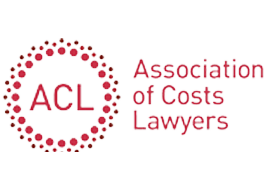
There are a number of costs orders available for the court to make. To assist our readers in seeking and obtaining the most appropriate order following interim and appeal hearings, we consider the terms of the different types of orders available and their effect.
‘Costs in any event’ has the effect that the party in whose favour the order is made is entitled to their costs in respect of the part of the proceedings to which the order relates, whatever other costs orders are made in the proceedings. This order is likely to be made at an interim hearing or following determination of an application and will mean that the party in whose favour the order is made will recover their costs of the interim hearing or application from the opponent irrespective of which party wins at the final hearing.
‘Costs in the case’ has the effect that the party in whose favour the court makes an order for costs at the end of the proceedings is entitled to their costs of the part of the proceedings to which the order relates. This seems very straightforward, but what happens in a situation where each party receives an award of costs from the court at the end of the case? The case of Ontulmus v Collett [2014] EWHC 4117 (QB) provides that the correct approach is to determine which party’s overall order for costs covered the period in which the ‘costs in the case’ order was made, and it is that party that should benefit from the ‘costs in the case’ order.
Similar to ‘Costs in the case’, ‘Costs in the application’ has the effect that whichever party is awarded a costs order in the application will also recover the costs of the interim hearing from the opponent. This most commonly applies in circumstances where the initial hearing is adjourned to a later date.
‘Costs reserved’ will mean that the decision about costs is deferred to a later occasion, however, in accordance with CPR PD 44 paragraph 4.2, an order for ‘costs reserved’ becomes an order for ‘costs in the case’ upon conclusion of the proceedings, but only if there is no later determination of where the responsibility for those costs lie.
‘Claimant’s / Defendant’s costs in the case / application’ has the effect that if the party in whose favour the costs order is made is awarded costs at the end of the proceedings, that party is entitled to its costs of the part of the proceedings to which the order relates. If any other party is awarded costs at the end of the proceedings, the party in whose favour the final costs order is made is not liable to pay the costs of any other party in respect of the part of the proceedings to which the order relates.
‘Costs thrown away’ will mean that where, for example, a judgment or order is set aside, the party in whose favour the costs order is made is entitled to the costs which have been incurred as a consequence. This includes the costs of preparing for and attending any hearing at which the judgment or order which has been set aside was made; preparing for and attending any hearing to set aside the judgment or order in question; preparing for and attending any hearing at which the court orders the proceedings or the part in question to be adjourned; and any steps taken to enforce a judgment or order which has subsequently been set aside.
‘Costs of and caused by’ has the effect that where the court makes this order on an application, the party in whose favour the costs order is made is entitled to the costs of preparing for and attending the application and also the costs of any consequential issues. For example, where there is an application to amend a statement of case, the party in whose favour the costs order is made is entitled to the costs of preparing the application (and the application hearing) and also the costs of any consequential amendment to his own statement of case. Importantly, such order makes no provision for the consideration of the opponent’s or any other party’s statement of case.
‘Costs here and below’ will have the effect that the party in whose favour the costs order is made is entitled not only to that party’s costs in respect of the proceedings in which the court makes the order but also to that party’s costs of the proceedings in any lower court. However, it is important to note that in the case of an appeal from a Divisional Court (meaning a court that consists of two or more judges, normally a High Court Judge and a Lord Justice of Appeal such as the Administrative Court) the party is not entitled to any costs incurred in any court below the Divisional Court.
‘No order as to costs’ or ‘Each party to pay own costs’ provides that each party is to bear their own costs of the part of the proceedings to which the order relates whatever costs order the court makes at the end of the proceedings.
Where a court order makes no mentioned of costs, CPR 44.10 provides that the general rule is that no party is entitled to costs. Where an interim order is silent as to costs, Griffiths v Metropolitan Police Comr [2003] EWCA Civ 313 is authority that the trial judge has no jurisdiction to vary that order.
There are, however, exceptions set out at CPR 44.10(2). Where the court makes either an order granting permission to appeal; an order granting permission to apply for judicial review; or any other order or direction sought by a party on an application without notice, and its order does not mention costs, it will be deemed to include an order for the applicant’s costs in the case.
Issue and Percentage Based Costs Orders
The court has absolute discretion as to costs and in deciding what order (if any) to make about costs, the court will have regard to all the circumstances, including the conduct of all the parties, whether a party has succeeded on part of its case even if that party has not been wholly successful, and any admissible offer to settle made by a party which is drawn to the court’s attention and which is not an offer to which costs consequences under Part 36 apply.
There are various orders that the court may make having regard to the aforesaid factors. These are set out in CPR 44.2(6) as follows:
(a) a proportion of another party’s costs;
(b) a stated amount in respect of another party’s costs;
(c) costs from or until a certain date only;
(d) costs incurred before proceedings have begun;
(e) costs relating to particular steps taken in the proceedings;
(f) costs relating only to a distinct part of the proceedings; and
(g) interest on costs from or until a certain date, including a date before judgment.
Interestingly, these are set out in the order of desirability for the ease of any assessment of costs. This is highlighted in CPR 44.2(7), which provides that before the court considers making an order for costs relating only to a distinct part of the proceedings, it will consider whether it is practicable to make a percentage-based order or an order awarding costs from or until a certain date only.
This approach has been successfully applied in a number of cases, including Budgen v Andrew Gardner Partnership [2002] EWCA Civ 1125, where the trial judge ordered the defendant to pay 75% of the claimant’s costs on the basis that the claimant had lost one issue, which had taken up a substantial amount of the trial. The defendant’s appeal against the judge’s refusal to make an issues-based order in its favour was dismissed.
In many cases, the parties should be capable of making costs submissions and the trial judge should be able to reflect the relative success of the parties on different issues by making a percentage based costs order. This will invariably lead to a shorter detailed assessment.
The difficulties faced by costs judges when an issue-based costs order is made is that they will have to master the issues in detail to be able to determine what costs were properly incurred in dealing with it. They will not usually have the assistance of anyone who was present at the trial to clarify how issues were formulated by the trial judge. However, this is where the conducting lawyers can play an important role in the detailed assessment of costs.
Finally, whatever the nature of the costs order awarded, it is important that the instructed costs professional is skilled in the identification and separation of costs relating to specific issues. This will ensure the preparation of accurate costs pleadings in order to make the detailed assessment procedure as efficient as possible.





